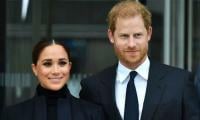Islamabad : Most of around 400 poor children under the age of five years have become highly vulnerable to lifelong hearing loss due to the suspension of government funding to the country’s only public sector cochlear implant centre functioning in the federal capital.
The centre put up at the ENT Department of the Capital Hospital in G-6/2 in March 2016 with the collaboration of the National Special Education Centre for Hearing Impaired Children has so far performed 150 surgeries to implant hearing devices in minor children whom conventional deaf-aids don’t benefit.
Of those profoundly deaf children, 141 poor ones from Khyber Pakhtunkhwa, southern Punjab, interior Sindh, and Azad Jammu and Kashmir, got the high-priced cochlear implants at the government’s expense under the Prime Minister’s Fatal Disease Programme, while the rest paid for the procedure and hearing devices out of their own pocket.
However, the government funding for the treatment of poor children at the centre came to a halt after the PML-N completed its term in power in May this year.
Thereafter, the parents of around 400 minors awaiting cochlear implants and a medical board overseeing such cases contacted the Prime Minister’s Office and the parliamentary affairs ministry’s Grievances Wing many times for funds, but to no avail, as the latter insisted that the government was too strapped for cash to offer any help.
Now, uncertainty surrounds these cases with the parents fearing that their children aged below five years will be unable to hear all through their life if they don’t get cochlear implants without delay.
A special medical board headed by the Capital Hospital executive director and consisting of an ENT surgeon, an audiologist, a biomedical expert and a speech therapist, recommends the cases of poor patients to the Prime Minister’s Office for the funds’ approval. And once the funds are released, the Capital Hospital performs the surgery to implant hearing aid, while the services of an audiologist and speech therapist for patients are provided by the Special Education Centre.
The board can engage radiologists, paediatricians, psychiatrists and clinical psychologists of the Capital Hospital when the need arises, while the centre can avail itself of the facility of state-of-the-art HRCT scan and MRI facilities available at the hospital.
The doctors warn that if the children with non-serviceable hearing don’t get cochlear implants until the age of five years, their hearing loss will last all through life.
According to them, the best age for a child to undergo that surgery is from one to three years.
“The best results were found among children who received the cochlear implant at 0-3 years of age. They achieved 90-95 per cent hearing and language improvement. 80-90 per cent of these children develop a hearing and speech equal to those of children with normal hearing,” an expert said, recommending early intervention for addressing the hearing impairment.
Now, as most of the children awaiting the release of government funding to get cochlear implants are aged around five years, they’re at risk of getting lifelong hearing loss.
The cochlear implant centre charges a patient around Rs1.27 million for the surgical procedure and device.
A patient’s father told ‘The News’ that the last grant for cochlear implant cases was released by June 30 and the centre got no funds thereafter despite repeated requests of the parents and medical board to the Prime Minister’s Office, which insisted that the government could no more fund the treatment due to the financial crunch. “No case has been approved by the government in the current fiscal,” he said.
In this image, Child Protection Institute building can be seen. — X/@mohrpakistan/File Islamabad: Child Protection...
The National University of Modern Languages building seen in this image released on November 11, 2022. —...
President of the International Islamic University Islamabad , Prof Dr Hathal bin Hamoud Al-Otaibi, and Rector IIUI, Dr...
A representational image of a handcuffed person behind bars. — AFP/FileRawalpindi:In a significant breakthrough,...
Director of Directorate of Workers Education Rai Muhammad Akbar briefs the participants during the “cleanliness...
Chairman IPO Pakistan Farukh Amil and Shazia Adnan, Director General Pakistan addresses a press conference on April...







